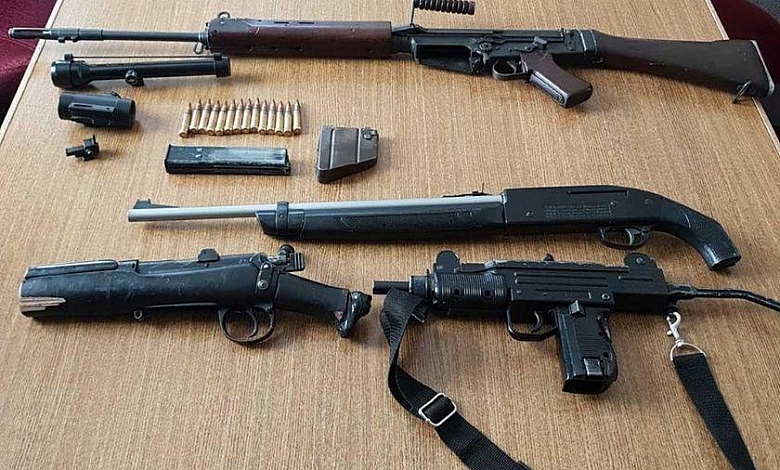Firearms Act of 2011

The Firearms Act of 2011 is the primary legislation governing the possession, licensing, use, and regulation of firearms and ammunition within the Commonwealth of Dominica. This Act was enacted to establish strict guidelines for firearm ownership, ensuring that only authorized individuals have access to weapons while maintaining public safety and national security. It outlines the procedures for obtaining firearm licenses, storage requirements, penalties for violations, and the responsibilities of law enforcement authorities in firearm-related matters.
Key Provisions of Dominica’s Firearms Act of 2011
1. Firearm Licensing and Registration
Under the Act, all individuals seeking to own or use a firearm must first obtain a firearm license. The requirements for obtaining a firearm license include:
- Background Checks: Applicants must pass a thorough criminal background check conducted by law enforcement.
- Competency Certification: A firearms safety course must be completed, and a certificate of competence from an accredited institution is required.
- Justification for Ownership: Applicants must demonstrate a valid reason for owning a firearm, such as hunting, security work, or sports shooting.
- Psychological Evaluation: The Act allows for mental health assessments to ensure that applicants are mentally fit to possess a firearm.
Failure to obtain a valid firearm license results in severe penalties, including fines, confiscation of weapons, and imprisonment.
2. Firearm Classification and Restrictions
The Act categorizes firearms based on their type, purpose, and potential risk to public safety:
- Restricted Firearms: This category includes semi-automatic and fully automatic weapons, which are only permitted for military and law enforcement personnel.
- Prohibited Firearms: The Act strictly bans certain weapons, such as high-powered rifles, military-grade weapons, and unregistered firearms.
- Licensed Civilian Firearms: Limited to handguns, shotguns, and hunting rifles, which require strict licensing and periodic review.
3. Regulation of Ammunition and Storage
The Firearms Act imposes strict controls on the sale, purchase, and storage of ammunition:
- Ammunition Limitations: Licensed firearm owners can only purchase and possess limited ammunition at any given time.
- Secure Storage Requirements: Firearms and ammunition must be stored in a locked, secure container or safe, separate from each other, to prevent unauthorized access.
- Reporting Loss or Theft: Owners must immediately report lost or stolen firearms to the authorities. Failure to report such incidents may lead to criminal liability.
4. Prohibitions and Illegal Possession
Possession of a firearm without a valid license is a serious offence under the Act. Key prohibitions include:
- Unlicensed Possession: Carrying or owning a firearm without proper authorization is punishable by heavy fines and imprisonment.
- Public Carry Restrictions: Unless authorized, firearms or ammunition may not be carried in public spaces, including markets, schools, government buildings, and events.
- Unlawful Discharge: Firing a weapon within populated areas or near public roads is prohibited except in cases of self-defence or authorized use.
5. Regulation of Imitation Firearms
The Act also addresses imitation firearms, ensuring they are not used in criminal activities. Regulations include:
- Manufacture and Sale Restrictions: Businesses selling imitation firearms must obtain special licensing and ensure that they cannot be modified into functional weapons.
- Use in Crimes: Using fake or replica firearms to commit a crime carries the same penalties as using real firearms.
6. Law Enforcement Powers and Penalties
The Firearms Act grants law enforcement authorities broad powers to search, seize, and prosecute firearm-related offences:
- Search and Seizure: Police officers may enter premises, conduct searches, and confiscate illegal firearms without prior notice if there is reason to believe a crime is being committed.
- Firearm Amnesty Programs: The Act allows the government to implement firearm surrender programs, encouraging citizens to turn in illegal weapons without penalty within a specific time frame.
- Severe Penalties: Violations of the Act result in significant fines and lengthy prison sentences, particularly for crimes involving firearm trafficking, illegal possession, or violence.
Impact of the Firearms Act of 2011
The Firearms Act of 2011 plays a critical role in maintaining public safety and controlling firearm-related crimes. By ensuring strict licensing, responsible ownership, and harsh enforcement measures, the law provides a structured approach to firearm management in Dominica. The Act remains a key pillar in national security and crime prevention efforts through continued government oversight and law enforcement collaboration.




